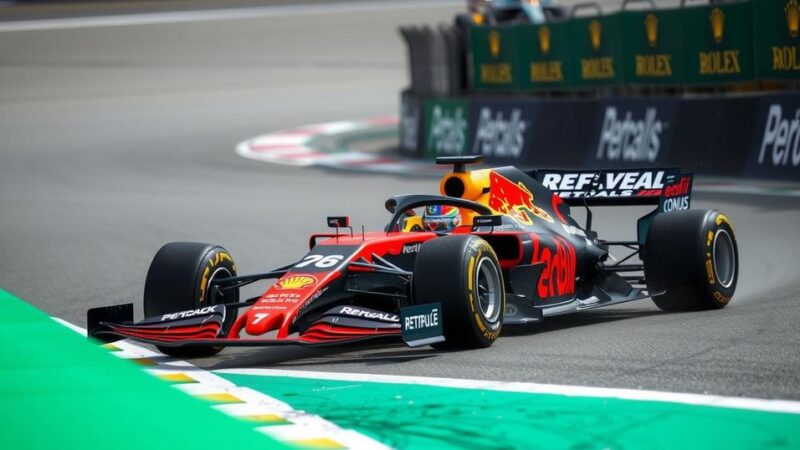Max Verstappen’s recent ‘community service’ punishment in Rwanda for swearing during a press conference raises concerns about its effectiveness and environmental impact. The requirement appears to ensure his attendance at the FIA Awards Ceremony rather than serving as a true disciplinary measure, highlighting inconsistencies in how the FIA addresses driver misbehavior.
Max Verstappen’s recent penalization for swearing during a press conference has drawn scrutiny due to its peculiar execution, requiring him to engage in a supposed ‘community service’ in Rwanda. This obligation, which entails an excessive eight-and-a-half-hour flight for what amounts to attending a grassroots developmental program organized by the Rwanda Automobile Club, raises questions about both its significance and environmental ramifications. Given that this punitive measure effectively ensures Verstappen’s presence at the FIA Awards Ceremony, one might argue that it serves more as a public relations maneuver than a genuine attempt at corrective action.
The FIA has characterized Verstappen’s involvement as ‘work of public interest’, involving an engagement with local junior competitors. However, details remain sparse, rendering the initiative somewhat superficial. The vague nature of the arrangement, compounded by similar past experiences, suggests a pattern where disciplinary actions are framed more as obligatory appearances rather than meaningful contributions to community development. For example, in previous incidents involving Verstappen, the requirements often amounted to mere public appearances rather than substantive rehabilitative work.
Moreover, it is pertinent to consider that the FIA could have opted for a more transparent and effective consequence for Verstappen’s actions, such as imposing a monetary fine allocated to meaningful initiatives within the organization. Such a measure would not only ensure accountability but also reinforce the importance the FIA places on behavioral expectations within the sport. The ongoing discourse surrounding this incident highlights not only Verstappen’s situation but also broader concerns regarding the efficacy of the FIA’s disciplinary measures and their impact on the sport’s integrity.
The requirement imposed on Max Verstappen to undertake community service in Rwanda arises from a penalty for swearing during a Formula 1 press conference. With the FIA Awards Ceremony coinciding with this community service, it raises questions about the true motivations behind the punishment rather than its rehabilitative potential. Throughout Formula 1’s history, various drivers have faced disciplinary actions with differing degrees of meaningful engagement in community service, leading to a perception that punitive measures have often been lackluster. The situation emphasizes the need for the FIA to consider more effective sanctions that align with their commitment to maintaining decorum in the sport.
The peculiar framing of Max Verstappen’s community service as punishment for his swearing incident appears more like a strategic instrument ensuring his attendance at the FIA Awards rather than a serious correctional measure. The lack of clarity surrounding the actual ‘work’ he is expected to perform further underscores a systemic issue within the FIA’s approach to driver discipline. This example reiterates the necessity for more meaningful sanctions that genuinely reflect the organization’s values and objectives, rather than mere symbolic gestures that undermine authority.
Original Source: www.autosport.com







